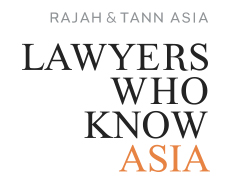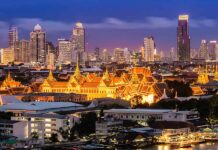Japan is a key investor in Thailand, particularly in key areas such as the automotive sector, as evidenced by Thailand Board of Investment (BOI) data throughout this period. Japanese investors are also key investors in the Eastern Economic Corridor, officially called the Eastern Special Development Zone, which is a special economic zone set up in three provinces on Thailand’s eastern seaboard.

Deputy Managing Partner
Tel: +66 2656 1991
Email: melisa.u@rajahtann.com
Japanese businesses considering investment in Thailand can take comfort from the fact that Thailand has steadily risen in the World Bank’s Ease of Doing Business rankings, which measures business regulations across 190 economies, and in 2020 gave Thailand a rank of 21 and an average score of 80.1 out of 100. Thailand also received one of its highest scores, 92.4 out of 100, for the ease of starting a business. To give one example, private limited companies are the most common form of business entity in Thailand, and can be established within one week.
When entering the Thai market, a key factor to consider is the restriction on foreign ownership relevant to specific businesses, as set out in the Foreign Business Act, 1999 (FBA), or other specific laws. Foreigners are also prohibited from owning land according to the Thai Land Code. However, Thai law provides mechanisms for lawful ownership of companies, such as through the use of Board of Investment (BOI) promotional privileges, which can award 100% foreign ownership as well as other tax and non-tax privileges. One such non-tax privilege is the BOI’s ability to permit the ownership of land by foreigners, as does the Industrial Estate Authority of Thailand, in each case subject to the applicable terms and conditions.
Japanese investors are also able to rely on the provisions of the Japan-Thailand Economic Partnership Agreement (JTEPA), which allows for a higher level of participation in certain businesses such as retail, wholesale and restaurant businesses, subject to conditions. The recently expanded Japan-ASEAN Comprehensive Economic Partnership Agreement (JCEPA) provisions on trade in services has also opened up the possibility of ownership of up to 70% in certain services businesses.
Where a foreign business licence and/or BOI promotional certificate is not granted, the foreign investor may have to consider investing in Thailand by forming a special vehicle with Thai business partners. This is commonly done by establishing a joint venture with a Thai party in the form of a private limited company.
A short overview of relevant FBA provisions, and BOI promotional privileges and new developments, is set out below.

Deputy Managing Partner
Tel: +66 2656 1991
Email: sui.lin.teoh@rajahtann.com
Foreign Business Act
The FBA prohibits foreigners from operating certain specified businesses, and requires foreigners to seek approval or licences from the Ministry of Commerce (MOC) in order to operate certain other businesses. The restrictions are set out in three schedules, briefly described below.
Schedule 1: Strictly prohibits foreigners from conducting certain core business activities that are deemed to be important to the Thai national interest, such as engaging in agriculture, trading in Thai antiques or objects of national historical value, and trading in land.
Schedule 2: Unless a foreigner obtains protection under treaties or privileges from the BOI, a licence must be obtained from the MOC, with the approval of the Thai Cabinet, in order to operate a schedule 2 business. Schedule 2 is divided into three chapters. Chapter 1 lists businesses important to Thai national safety or security, and transportation businesses such as water or air transport. The remaining two chapters involve traditional Thai art, culture, handicrafts, natural resources and/or the environment of Thailand.
Schedule 3: Contains a list of business activities in which Thais are not yet deemed ready to compete with foreigners. Schedule 3 lists many types of businesses including wholesale trade, retail trade, and the provision of certain types of professional services such as accounting or legal services. It also contains a catch-all category called “other services”. Schedule 3 businesses require a licence from the Department of Business Development, under the MOC, before operations can commence in order to be lawfully conducted by a foreigner, unless the business has obtained BOI privileges, or a protection under a relevant treaty, or in some cases it can rely on a minimum capital exemption.
The licensing process for a business under schedule 3 can take a number of months. Approval is granted at the sole discretion of the director general of the Department of Business Development, with the approval of a foreign business committee comprising representatives from various government agencies, and is based on factors such as the type of business, and the reason and necessity to grant a licence for such business.
BOI promotion
The BOI was set up under the Investment Promotion Act, 1977 (IPA), to encourage investment in Thailand. Under the IPA, the Thai government has granted full foreign ownership rights to foreigners who undertake to make major investments and transfer technology to Thailand.
Generally, BOI privileges are granted for manufacturing products, as well as certain non-manufacturing activities. To qualify for BOI promotion, foreign nationals are usually obliged to transfer a specific amount of capital, technology and equipment technology into Thailand within a period and under conditions stipulated by the BOI.
Generally, the BOI offers two kinds of benefits: Tax-based incentives, such as tax holidays and tariff exemptions on imports; and non-tax privileges such as permission for foreign nationals to take 100% ownership of the business, own land, and beneficial visa and work permit policies. The non-tax privileges are available to all BOI-promoted projects, regardless of location or industry type. Tax-based incentives, on the other hand, will depend on various factors associated with the activity to be promoted, and only apply to projects that enhance national competitiveness. A brief overview of some of the most recent incentive measures is set out below.
The time taken for the BOI to review applications usually depends on the value of the investment, and submission of a complete application with relevant documentation, but it can take between 40 and 90 working days as a general guide, depending on investment value and the nature of the business.
Where a business is able to receive a BOI promotion allowing 100% ownership, or where it is able to utilise the privileges under the JTEPA or JCEPA, it can obtain a certificate from the MOC in an expedited process.
2021 BOI measures
The BOI is frequently expanding the scope of privileges it offers. On 21 December 2020, the BOI approved a series of investment acceleration measures to stimulate Thailand’s economy and encourage businesses to adopt digital technologies in 2021, as summarised below.
(1) Investments in certain target industries with a realised investment of at least THB1 billion (US$32 million) within 12 months from the date on which the BOI promotion certificate is issued are entitled to an additional 50% corporate income tax (CIT) deduction for a period of five years. This is in addition to the standard CIT exemption period of five to eight years, which is generally granted by the BOI. Eligible applicants may apply for this investment promotion scheme before 30 December 2021.
(2) The BOI has extended the application period for the special incentive scheme for special economic zones in 10 provinces – Kanchanaburi, Chiang Rai, Trat, Tak, Nakhon Phanom, Narathiwat, Mukdahan, Songkhla, Sa Kaeo and Nong Khai – to the last working day of 2022. The BOI is also offering an eight-year CIT exemption and an additional 50% CIT deduction for another five years for 14 target industries that include medical equipment manufacturing, logistics, and electrical appliances and electronics.
(3) Similarly, the BOI has extended the application period until the last working day of 2022 for the special incentive scheme for the southernmost five provinces – Narathiwat, Yala, Pattani, Satun, and four districts in Songkhla. The measures include a low minimum investment requirement of THB500,000, an eight-year CIT exemption, and an additional 50% CIT deduction for another five years.
(4) The Genomics Thailand project located in Burapha University is newly established as a promoted zone for special activities like the Eastern Airport City and Digital Park Thailand. The BOI is offering a CIT exemption for five to eight years, and an additional 50% CIT deduction for another two years for investments made in promoted zones.
(5) In order to promote the integration of digital technology into the operation of new or existing investments, the BOI has offered a CIT exemption for 50% of the investment value, for a period of three years, to qualified investments. Examples of digital technologies include big data, data analytics and artificial intelligence. Eligible applicants may apply for this investment promotion scheme until the last working day of 2022.

Melisa Uremovic
Deputy Managing Partner
Tel: +66 2656 1991
Email: melisa.u@rajahtann.com
Sui Lin Teoh
Deputy Managing Partner
Tel: +66 2656 1991
Email: sui.lin.teoh@rajahtann.com
R&T Asia (Thailand)
973 President Tower 12/F Units 12A
12F Ploenchit Road, Lumpini, Pathumwan
Bangkok, 10330 Thailand
Tel: +66 2656 1991
Email: info@rajahtann.com
www.rajahtannasia.com






























